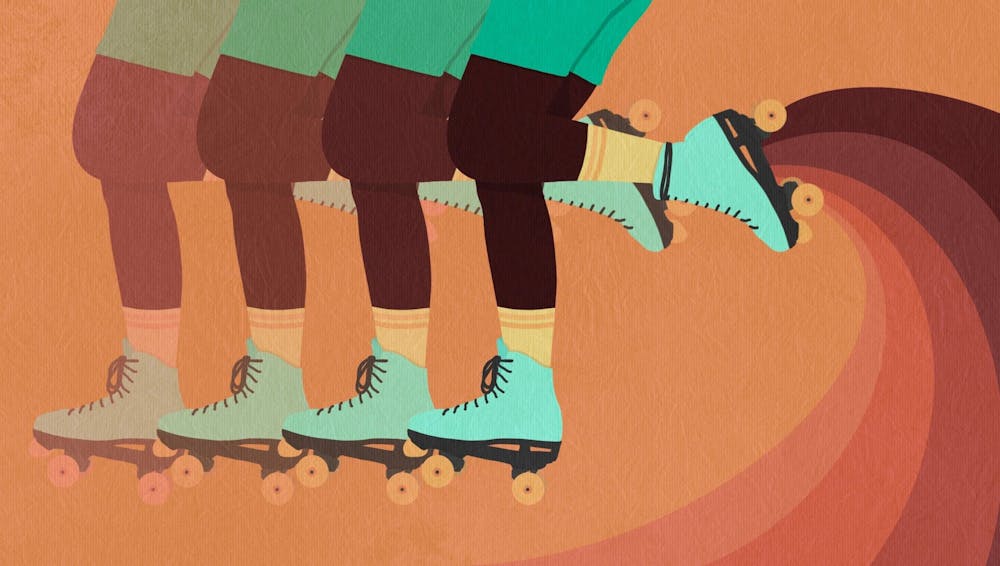Throughout quarantine, many have found new hobbies that are fun yet safe. Some started baking bread and others continuously created TikToks.
Many bought roller skates. As a result, roller skating has become popular across the nation.
Whether you learned from Ana Octo from Tik Tok, Dirty Debbie from YouTube or even Oumi Janta from Instagram, it is important to recognize the deep roots of roller skating in the Black community.
With the rising popularity of roller skating, there has been an erasure of Black culture in this space.
Well-known companies such as Planet Roller Skate came under fire for censoring Black voices. Within their Facebook group, many skaters have posted about issues such as sexism and misogyny.
When Black skaters posted about the killing of George Floyd and Black Lives Matter support, their posts were deleted and deemed too political.
This emphasizes the lack of cultural and social awareness around the roller skating community.
Roller skating is deeply connected to the civil rights movement. Rinks were one of the three hardest public spaces to desegregate, along with public schools and amusement parks. The rinks were split by white and Black nights.
White people would stop attending when rinks were integrated, often forcing them to close down. But roller staking rinks were still segregated through the names of the nights and other discriminatory practices. Instead of Black night, it would be called Soul Night. Instead of white night, it was Top 40s Night.
Culture flourished within the Black skating community as a result of this continued segregation. Black skaters were able to skate to the music they wanted and develop their own individualistic skating styles. These spaces also became the main stage for hip-hop music.
Hip-hop music was largely shunned from the music industry. Some roller skating rinks had discriminatory rules such as prohibiting hip-hop music. The documentary "United Skates" said one of the only spaces hip-hop artists could perform was at the rink.
Famous musicians such as Queen Latifah, Salt-N-Peppa and Ice Cube have performed at roller rinks.
Artists also had nationwide tours, where they would perform at different roller skating rinks. Artists were able to reach large audiences. This increased reach allowed groups such as NWA to form and gain popularity.
In present day society, roller skating rinks in cities are thriving because of Black communities.
But racism that was prevalent during the civil rights movement is still seen in rinks today. Communities try to get rinks shut down in urban neighborhoods, and there is often a police presence on nights with predominately Black skaters. When there are mostly white skaters, police and internal security are nowhere to be found.
It is a common misconception that roller skating was dead prior to quarantine simply because it was not popular in white communities. But roller skating is an essential part of Black culture.
If you roller skate make sure to not only have fun, but also recognize the roots of roller skating in Black culture and history.






